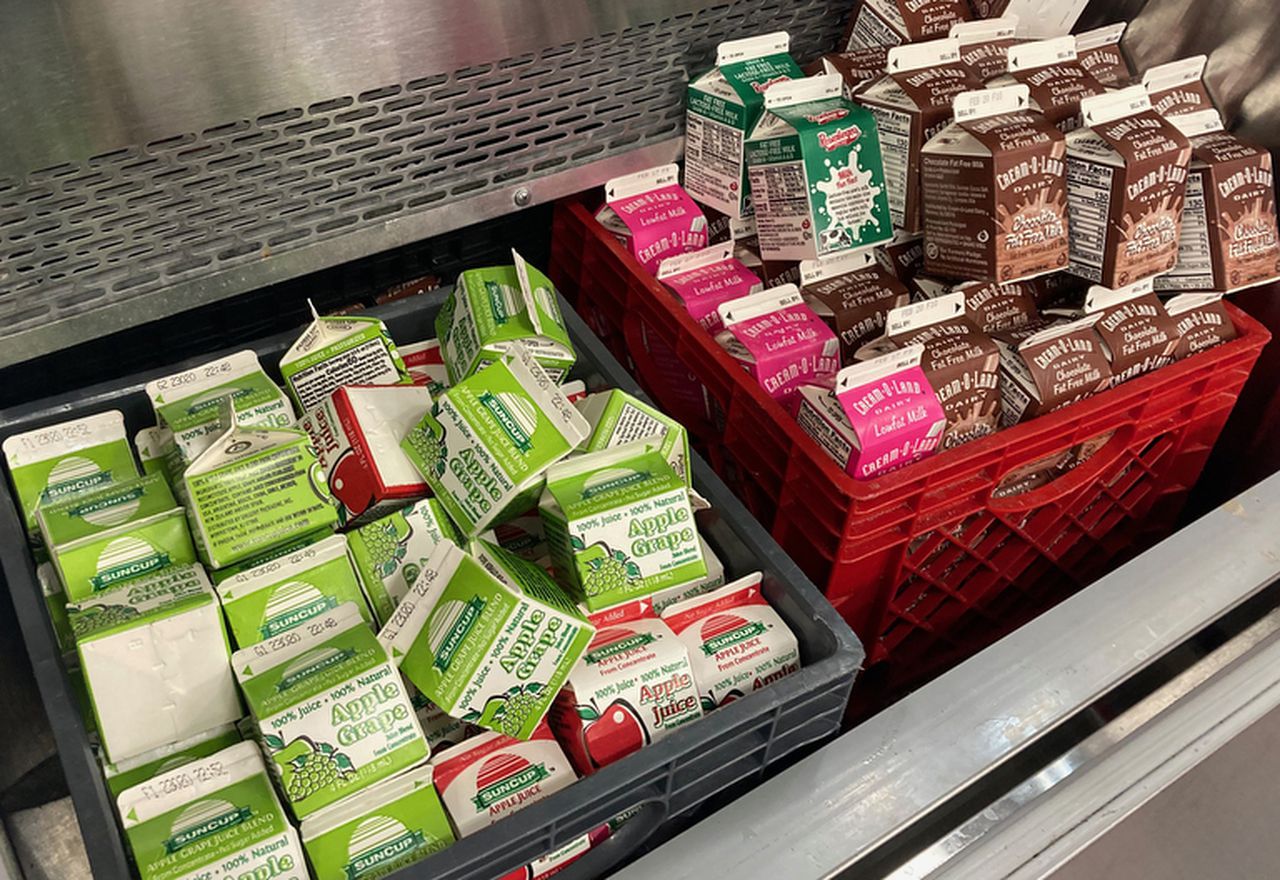
Massachusetts schools are offering free breakfast and lunch to all students but some parents might still see some charges.
On Aug. 8, Gov. Maura Healey signed a $56 billion budget, which included $172 million for the permanent universal lunch program for public school students in kindergarten through grade 12.
The free meals program offers one breakfast and lunch at no charge to all students regardless of income, Massachusetts Department of Elementary and Secondary Education said. However, students must take a fruit and vegetable to get the free meal, as the schools will not be reimbursed for the meal without this. That means if a student skips taking the fruit or vegetable that day, they’ll be charged.
At least some schools are keeping fruit and vegetables near the checkout to help remind students.
Also, if a student gets an extra lunch, including a slice of pizza after their first lunch, they will be charged for it. Other a-la-carte items, such as cookies or ice cream, cost money, too.
So, if you see a charge, you might want to talk with your children about these options.
The statewide program was made to help with the stigma attached to getting free meals, Laura Amedeo, the supervisor of school cafeterias in West Springfield, told The Republican.
“There are still many families who struggle with food insecurity. However, students can now enjoy nutritious meals without worrying about debt or feeling ashamed for receiving reduced or free meals,” said Amedeo.
Previously, if a student owed money, a cashier could throw away the child’s hot meal and replace it with a cold, cheese sandwich.
Massachusetts Law Reform Institute advocated that schools to do away with practices that shame children for their parents’ financial circumstances.
“Massachusetts is a national leader in education – now it is time for the Commonwealth to ensure that no child in our state will be denied a school meal or be shamed because of a family’s school meal debt,” the 2018 report stated.
Some school districts in Massachusetts have had free lunches in place for years. But officials said the program shines a light on just how many families depend on school meals daily and will be a huge contributor to stamping out hunger in the state.
“Our goal is always to increase participation. We want more families to realize the benefits and participate,” said Melanie Wilk, director of food service at Chicopee Public Schools.






